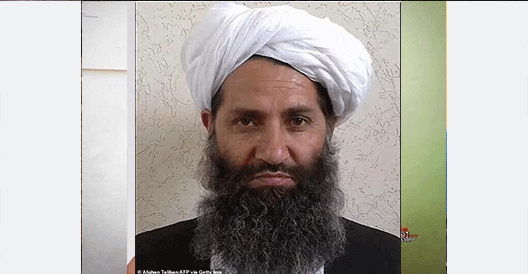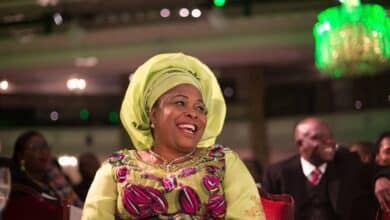Home
Taliban to unveil Afghanistan’s new government with presidential palace ceremony today

Mullah Haibatullah Akhundzada, the supreme leader of the Taliban.
Afghanistan’s new Taliban rulers are set to announced their new government today as the country faces economic collapse and food shortages.
This comes more than two weeks after the Islamist militia captured Kabul and brought a deadly end to 20 years of war, with the Taliban now back in control of the country as they were from 1996 to 2001.
Taliban official Ahmadullah Muttaqi said on social media a ceremony is being put in place at the presidential palace in Kabul after the US withdrawal, while private broadcaster TOLONews said an announcement on a new government was imminent.
Meanwhile, one-third of the country is facing food insecurity and is in desperate need of funds, according to the World Food Programme amid warnings of a humanitarian crisis in the country.
The Taliban are unlikely to get quick access to around $10 billion of assets held abroad by the Afghan central bank, and are struggling to reassure banks that the economy under the group will be fully functional.
It is expected that the Taliban’s supreme leader, Haibatullah Akhundzada, will have ultimate power over a new governing council, with a president below him, a senior Taliban official told Reuters news agency last month.
The supreme Taliban leader has three deputies: Mawlavi Yaqoob, son of the movement’s late founder Mullah Omar; Sirajuddin Haqqani, leader of the powerful Haqqani network who the FBI have offered a $5 million reward for finding; and Abdul Ghani Baradar, who founded the group along with Mullah Omar in 1994.
In a new development, the Taliban trying to present a more moderate face to the world since theyreturned to power last month, promising to protect human rights and refrain from reprisals against old enemies.
But the United States, the European Union and others have cast doubt on such assurances, saying formal recognition of the new government and the economic aid that would flow from that – is contingent on action.
‘We’re not going to take them at their word, we’re going to take them at their deeds,’ U.S. Undersecretary of State Victoria Nuland told a news briefing on Wednesday September 1.
‘So they’ve got a lot to prove based on their own track record … now they also have a lot to gain, if they can run Afghanistan, far, far differently than they did the last time they were in power.’
Gunnar Wiegand, the European Commission’s managing director for Asia and the Pacific, said the European Union would not formally recognise the Islamist group until it met conditions including the formation of an inclusive government, respect for human rights and unfettered access for aid workers.
Speaking to the BBC, Akhundzada said on Wednesday: ‘All ethnic groups that are living in Afghanistan – they’re Afghans – they have a right to be in the government.
‘But future government – the next government – they will be selected as per [their] merit. All those Afghans who have the ability, capacity and capability to work according to their profession – they will be in the government,’ he claimed.




